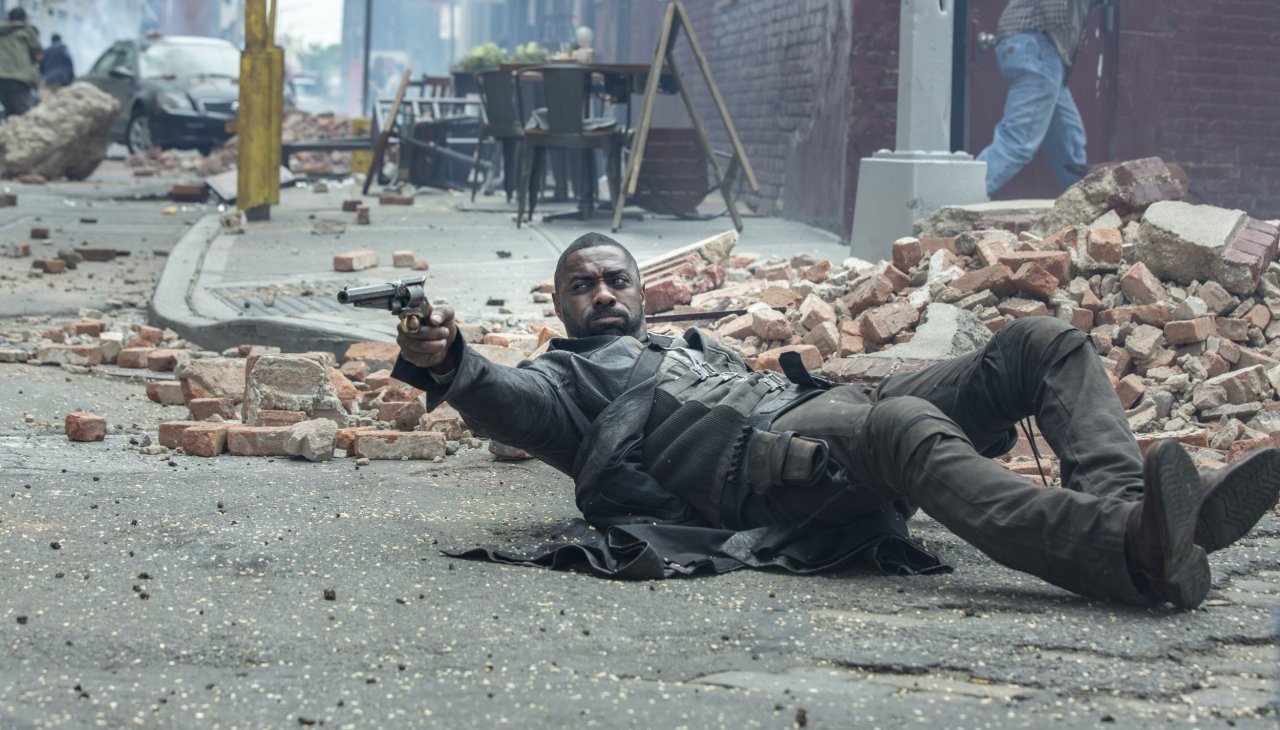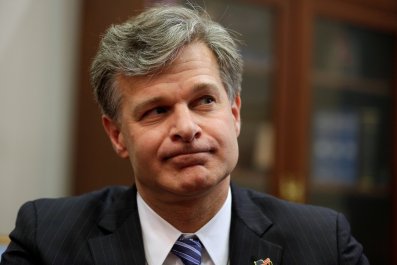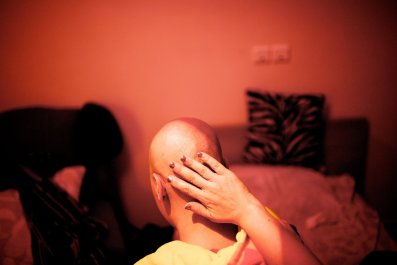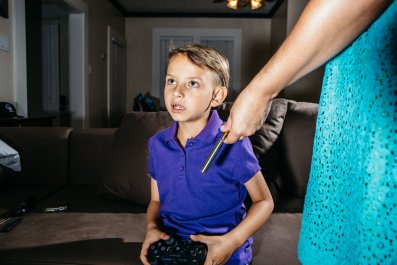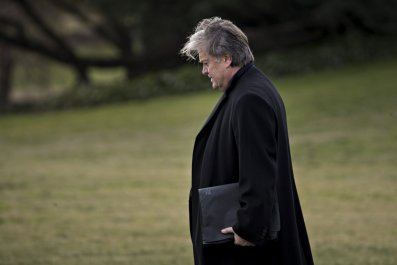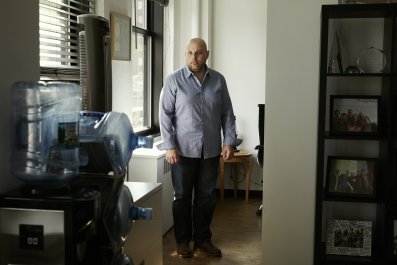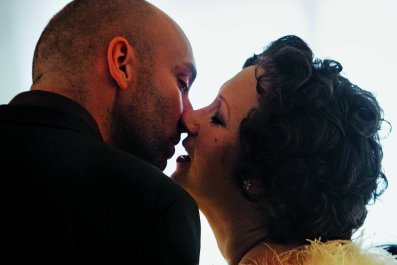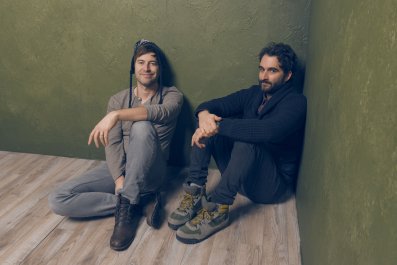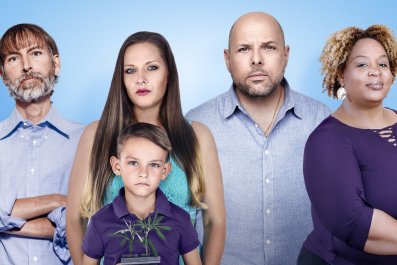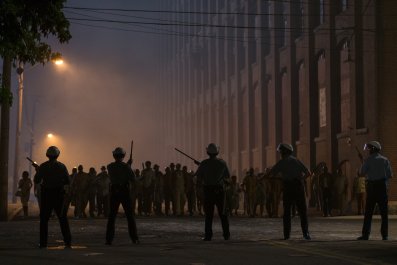On August 4, the fantasy-action-horror flick The Dark Tower—starring Idris Elba as the Gunslinger, a dimension-hopping loner, and Matthew McConaughey as his semi-immortal adversary—arrives after one of the most tortured development processes of any film in recent memory. Over the course of 15 years, some of the biggest names in Hollywood vied for the rights to adapt Stephen King's series of books. A brief timeline:
1982 King publishes The Gunslinger, the first installment of what will be an eight-part series called The Dark Tower, which follows a 30-generation descendant of King Arthur (turned High Plains drifter) attempting to defend a fabled tower, the nexus of a multidimensional universe. King later calls the series, which has now sold roughly 30 million copies worldwide, his "magnum opus." Inspirations include the Robert Browning poem "Childe Rowland to the Dark Tower Came," Clint Eastwood's spaghetti Western character Man With No Name and the fantasy multiverse of J.R.R. Tolkien's Lord of the Rings.
2007 At New York Comic Con, King surprises rabid fans with the news that he has sold the rights to writers Damon Lindelof and J.J. Abrams—two of the co-creators of the TV show Lost—for just $19 (the number has some weird numerological significance in the books). It will be a movie produced by Paramount Pictures. King tells the fans that he turned down previous offers because "I didn't think much of the chances of it being a good movie." King says, "I trust those guys, and they have a lot on the ball."
2009 Apparently not quite enough on the ball, as Lindelof and Abrams abandon the project two years later, primarily because they can't figure out how to adapt the books without changing them. "My reverence for Stephen King is now getting in the way," Lindelof says. "The Dark Tower thing is tricky," Abrams adds.
2010 After a few months, Universal Pictures/NBC Television announces plans to bring The Dark Tower to both the big and small screens: A film trilogy will be interspersed with two seasons of a TV miniseries, all to be directed by Ron Howard, written by Akiva Goldsman and produced by Brian Grazer—the Oscar-winning triumvirate behind A Beautiful Mind. Viggo Mortensen and Javier Bardem vie for the Gunslinger role.
2011 The project reportedly runs into "budgetary complications," and the studio considers financing partners to shoulder The Dark Tower's spiraling costs. Universal/NBC ends up scrapping the original start date, lowering the budget and ordering rewrites. In July, the studio drops the project.
2012 Goldsman, who has continued reworking the script, attempts to set up The Dark Tower at Warner Bros., with Russell Crowe interested in the Gunslinger part. Six months into discussions, the studio passes. The independent film and TV studio Media Rights Capital (MRC) starts "serious talks" to take over the project. Meanwhile, King finishes the final book in the series, which bears the rather awkward title The Wind Through the Keyhole.
2014 Breaking Bad co-star Aaron Paul says in an interview that Ron Howard is still "definitely planning on making it," and the actor has had "a ton of meetings" for a supporting part. Rumors also circulate that Liam Neeson is "interested" in an unspecified role.
2015 Sony teams with MRC to co-finance a first film installment. Rising Danish director Nikolaj Arcel (the Oscar-nominated A Royal Affair) is enlisted to co-write and direct. Elba is hired to play the Gunslinger—a white character in King's novels—and fanboy opprobrium predictably ensues, compelling co-writer Goldsman to remark: "The racist assholes should go fuck themselves." McConaughey is cast as the Man in Black.
2016 Arcel films The Dark Tower in South Africa and New York. Its release date gets pushed back three times, though not for lack of ambition: Sony wants to engineer a new "cinematic universe," à la the multibillion-dollar-grossing Star Wars canon or Marvel's interlocking superhero blockbusters, and the studio and MRC announce their commitment to finance between 10 and 13 episodes of a companion TV series, to air in 2018.
2017 Reactions to the first trailer, released in May, produce predictable mewling from the hard-to-please. ("The Dark Tower has been destroyed," tweeted Virtual Satyr). Whether that's true will be revealed on August 4, when the $60 million Dark Tower will either generate the sort of box office that can support a cinematic universe or join this summer's sandbox of franchise fizzlers (including The Mummy, Baywatch and King Arthur: Legend of the Sword). Fans of Elba simply hope it will be the big-screen project that finally turns the TV powerhouse into a bankable movie star.



